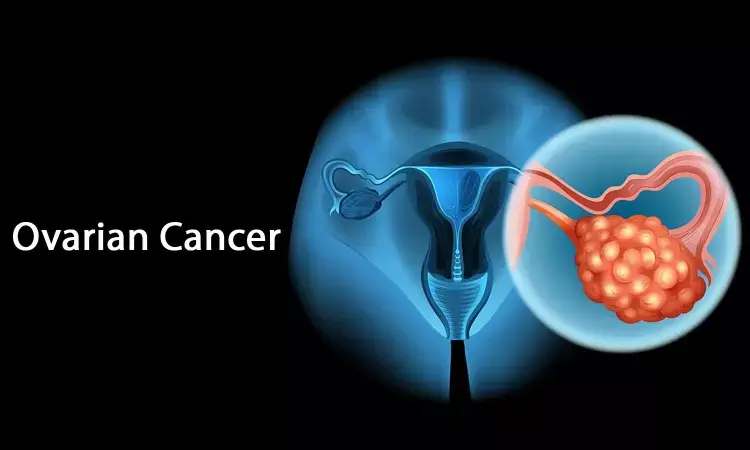- Home
- Medical news & Guidelines
- Anesthesiology
- Cardiology and CTVS
- Critical Care
- Dentistry
- Dermatology
- Diabetes and Endocrinology
- ENT
- Gastroenterology
- Medicine
- Nephrology
- Neurology
- Obstretics-Gynaecology
- Oncology
- Ophthalmology
- Orthopaedics
- Pediatrics-Neonatology
- Psychiatry
- Pulmonology
- Radiology
- Surgery
- Urology
- Laboratory Medicine
- Diet
- Nursing
- Paramedical
- Physiotherapy
- Health news
- Fact Check
- Bone Health Fact Check
- Brain Health Fact Check
- Cancer Related Fact Check
- Child Care Fact Check
- Dental and oral health fact check
- Diabetes and metabolic health fact check
- Diet and Nutrition Fact Check
- Eye and ENT Care Fact Check
- Fitness fact check
- Gut health fact check
- Heart health fact check
- Kidney health fact check
- Medical education fact check
- Men's health fact check
- Respiratory fact check
- Skin and hair care fact check
- Vaccine and Immunization fact check
- Women's health fact check
- AYUSH
- State News
- Andaman and Nicobar Islands
- Andhra Pradesh
- Arunachal Pradesh
- Assam
- Bihar
- Chandigarh
- Chattisgarh
- Dadra and Nagar Haveli
- Daman and Diu
- Delhi
- Goa
- Gujarat
- Haryana
- Himachal Pradesh
- Jammu & Kashmir
- Jharkhand
- Karnataka
- Kerala
- Ladakh
- Lakshadweep
- Madhya Pradesh
- Maharashtra
- Manipur
- Meghalaya
- Mizoram
- Nagaland
- Odisha
- Puducherry
- Punjab
- Rajasthan
- Sikkim
- Tamil Nadu
- Telangana
- Tripura
- Uttar Pradesh
- Uttrakhand
- West Bengal
- Medical Education
- Industry
HIPEC associated with longer Overall survival for patients with advanced-stage ovarian cancer

Hyperthermic intraperitoneal chemotherapy (HIPEC) surgery is a two-step procedure that treats certain cancers in the abdomen. Cancerous tumors are surgically removed, and then heated chemotherapy drugs are applied directly inside the abdomen to eliminate the remaining cancerous cells. Hyperthermic intraperitoneal chemotherapy (HIPEC) followed by interval cytoreductive surgery (ICS) has shown survival benefits for patients with advanced-stage ovarian cancer. However, there is still a lack of consensus regarding the integration of HIPEC into clinical practice.
To evaluate the safety and effectiveness of ICS with HIPEC compared with ICS alone in clinical practice for patients with advanced-stage ovarian cancer, Lee J, Lee YJ, Son J, et al carried out a prospective, multicenter, comparative effectiveness cohort study that enrolled 205 patients with stage III or IV ovarian cancer who had received at least 3 cycles of neoadjuvant chemotherapy followed by ICS with HIPEC or ICS without HIPEC at 7 Korean Gynecologic Oncology Group institutions between September 1, 2017, and April 22, 2022. Nine patients were excluded because they did not meet the inclusion criteria.
Neoadjuvant chemotherapy followed by ICS with HIPEC or ICS without HIPEC. The primary end point was progression-free survival (PFS). Overall survival (OS) and the safety profile were the key secondary end points.
- This study included 196 patients (median age, 58.0 years [range, 38-82 years]), of whom 109 underwent ICS with HIPEC and 87 underwent ICS without HIPEC.
- The median duration of follow-up was 28.2 months (range, 3.5-58.6 months). Disease recurrence occurred in 128 patients (65.3%), and 30 patients (15.3%) died.
- Interval cytoreductive surgery with HIPEC was associated with a significant improvement in median PFS compared with ICS without HIPEC (22.9 months [95% CI, 3.5-58.6 months] vs 14.2 months [95% CI, 4.0-56.2 months]; P = .005) and median OS (not reached [95% CI, 3.5 months to not reached] vs 53.0 [95% CI, 4.6-56.2 months]; P = .002).
- The frequency of grade 3 or 4 postoperative complications was similar in both groups (ICS with HIPEC, 3 of 109 [2.8%] vs ICS without HIPEC, 3 of 87 [3.4%]; P > .99).
- Among patients with recurrence, the frequency of peritoneal recurrence was lower in the ICS with HIPEC group than in the ICS without HIPEC group (21 of 64 [32.8%] vs 41 of 64 [64.1%]; P = .001).
This study suggested that ICS in conjunction with HIPEC was associated with longer PFS and OS than ICS without HIPEC for patients with advanced-stage ovarian cancer and was not associated with higher rates of postoperative complications. The lower rate of peritoneal recurrence after HIPEC may be associated with improved OS.
Source: Lee J, Lee YJ, Son J, et al. Hyperthermic Intraperitoneal Chemotherapy After Interval Cytoreductive Surgery for Patients With Advanced-Stage Ovarian Cancer Who Had Received Neoadjuvant Chemotherapy. JAMA Surg. Published online September 06, 2023. doi:10.1001/jamasurg.2023.3944
MBBS, MD Obstetrics and Gynecology
Dr Nirali Kapoor has completed her MBBS from GMC Jamnagar and MD Obstetrics and Gynecology from AIIMS Rishikesh. She underwent training in trauma/emergency medicine non academic residency in AIIMS Delhi for an year after her MBBS. Post her MD, she has joined in a Multispeciality hospital in Amritsar. She is actively involved in cases concerning fetal medicine, infertility and minimal invasive procedures as well as research activities involved around the fields of interest.
Dr Kamal Kant Kohli-MBBS, DTCD- a chest specialist with more than 30 years of practice and a flair for writing clinical articles, Dr Kamal Kant Kohli joined Medical Dialogues as a Chief Editor of Medical News. Besides writing articles, as an editor, he proofreads and verifies all the medical content published on Medical Dialogues including those coming from journals, studies,medical conferences,guidelines etc. Email: drkohli@medicaldialogues.in. Contact no. 011-43720751


